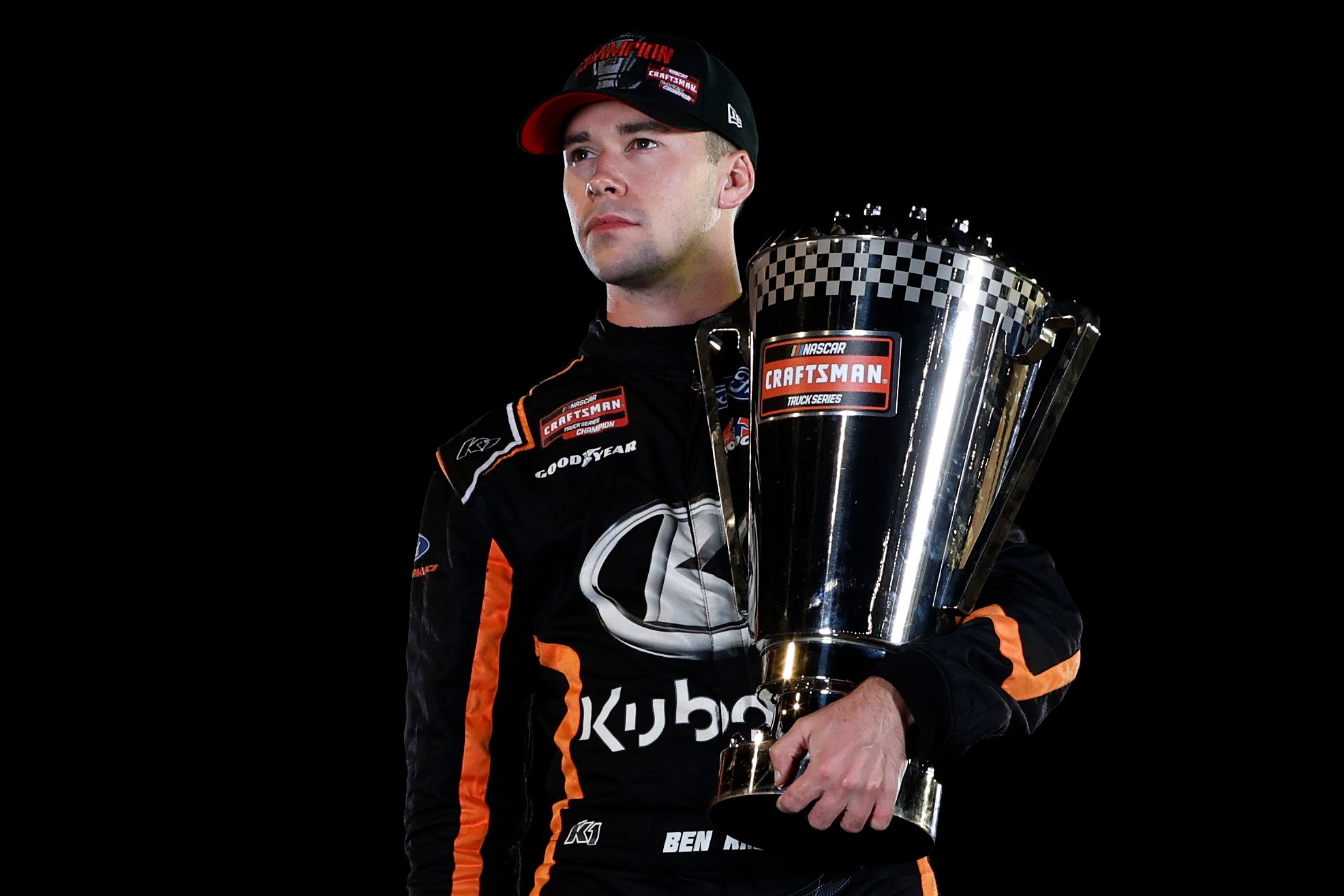Two-time NASCAR CRAFTSMAN Truck Series Champion Ben Rhodes has navigated the fast-paced world of racing since he first hopped into a go-kart at the age of seven in 2004. Over the years, he has ascended the racing ladder, competing in various series and vehicles to establish himself as a formidable force on track. In his ninth full-time season in the NASCAR CRAFTSMAN Truck Series, Ben races for the longest-tenured team, ThorSport Racing. As he prepares to begin the 2024 season, the Louisville, Kentucky, native is no stranger to hard work and understands the intense combination of physical and mental demands placed on a driver. In addition to the focus needed for any given race, cockpit temperatures inside the race truck can soar to excesses of 120 degrees Fahrenheit. Enduring such conditions requires drivers to maintain peak physical fitness, and Ben relies on AHBEEF as a key component of his fitness. A fan of the fattier cuts of beef, Ben says his favorite cuts are the AHBEEF Delmonico and Ribeye, helping him fuel before and after a race.
We sat down with Ben before he headed to Daytona to discuss why race drivers are indeed athletes and how AHBEEF helps fuel his success.
Q: Many people argue that drivers aren’t athletes. What is your response to this?
A: Most of the time, they only name their favorite sport or sports to somehow confirm their own bias. However, in any sport, there is a physical and mental component. It’s just at different levels, and that is especially true in racing. There are some cars that I have driven and tracks that I have raced in my life that I’m doing all I can to hold on, and you are counting down the laps because you desperately need a break. You’ll leave for the day and get the best sleep of
your life from pure exhaustion. And there are other races where the checkered flag falls, and you have the energy to do it all again. The difference for racers, though, is that you have to hold intense concentration throughout all of it, and a lapse in concentration leads to terrible outcomes.
Q: Tell us a little about how physically demanding driving a truck is. Most people liken it to
driving their passenger car on the road and don’t realize the demands on a driver’s body.
A: Trucks are for sure a physical form of racing, especially depending on the tracks we visit. Bristol or COTA will be way more physically demanding than Daytona, but Daytona is a very mentally taxing race. Everyone is different, but the single biggest thing that I have struggled with is temperature and carbon monoxide. The unfortunate part about the temperature is that I really
can’t do anything about it. The summer races are always the worst, so I just do my best to eat right and stay in shape. The biggest thing that helped me handle the extreme heat was putting on weight. Fifteen pounds made a huge difference for me. The G-forces are tough, too, but the best thing you can do is not fight them. Teaching your body to relax goes a long way.
Q: What do you do away from the track to prepare for racing?
A: Away from the track, we focus a lot on simulation, which not only helps the team prepare the trucks mechanically but can help the driver mentally prepare. Physically, I’m not too unlike the other drivers. I focus mainly on endurance training.
Q: How big of a factor is nutrition when it comes to a race weekend?
A: Nutrition is huge for me at the racetrack. I’ve become pretty in tune with my body the last few years on what makes me feel my best and what causes problems for me. Not only do you want to feel your best, but if you eat the wrong things, it can lead to bad consequences during a race. I’ve witnessed other drivers getting sick, and I don’t want that.
Q: What does your typical diet look like leading up to the race weekend?
A: Leading up to the race weekend, I focus hard on hydration and foods that reduce inflammation for me. So, for me, that is eating a lot of meat and natural foods and eliminating as much processed junk as possible. That can be hard, though, with the travel we have to and from racetracks. I recently increased my meat intake, and thanks to AHBEEF, I am eating as much as I can and the highest quality going into a race.
Q: How do you re-fuel yourself after a race?
A: After a race, my first priority is always rehydration. If I fail at that, I feel those effects pretty rapidly. Food, unfortunately, can be scarce after a race. Most of the time, we race at night, and the transporter where we cook meals is packed up and ready to head down the road. That leaves me with whatever restaurants I can find that are open late at night or at the airport.
